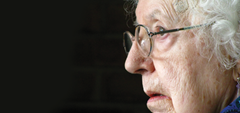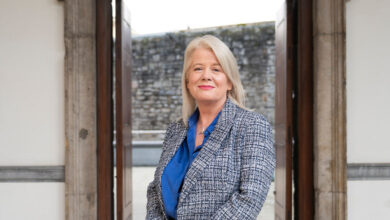Elderly on wrong medicines
 There have been calls for action after a report highlighted that many nursing home residents are being prescribed medication they should not be taking, eolas reports.
There have been calls for action after a report highlighted that many nursing home residents are being prescribed medication they should not be taking, eolas reports.
Seven out of 10 older people living in nursing homes are getting at least one inappropriately prescribed medicine.
This was the main finding of a cross- border study from the Centre for Ageing Research and Development in Ireland (CARDI).
It revealed that the residents frequently take an average of eight or more medicines a day, with one person on as many as 25 different tablets. Benzodiazepines − tranquilisers which relieve anxiety − are the most common drugs which are prescribed inappropriately.
Lead researcher Dr Stephen Byrne said the issue was a global problem and can have both minor and serious adverse effects on older people.
“One of the most common instances is the risk of falls and fractures, leading to extended hospitalisation,” he commented.
The study looked at 630 older people who are in long-term care in Cork and in Northern Ireland. The mistakes are proving to be costly, it found, as the bill for prescribing inappropriate medicine comes to around €166,000 a year, or €263 a head.
“Inappropriate medicines cost a considerable amount of money, an important consideration in a context where overall spending on medicines is high and rising and the growing number of older people suggests that pressure on pharmacy products will continue to increase,” the report states.
In the period 2003-2008, the annual number of treated cases reporting a benzodiazepine as a “problem substance” increased by just over 63 per cent from 1,054 in 2003 to 1,719 in 2008. Also, in 1998-2007, benzodiazepines were implicated in nearly one-third (31 per cent) of all deaths by poisoning, with the annual number increasing from 65 in 1998 to 88 in 2007.
The study found that those worst affected were men and people in their early to mid-80s who were frequently prescribed 12 tablets.
However, cases of inappropriate prescribing fell among people in their 90s. But the more tablets a resident was on, the more likely they were to receive the wrong drugs.
The document warned, though, that the findings could not generalise long-term care facilities across the country due to the small sample size used in the study.
Age Action has since urged Health Minister James Reilly to take immediate action. Spokesman Eamon Timmins said: “The implications of these findings are very serious for the potential threat posed for older people’s health, as well as the huge sums being paid by the state for medications which are not only not needed, but which may in fact be damaging people’s health.
“Those with responsibility for the regulation and training of health professionals must address this problem and ensure adequate models of care are in place, as a matter of urgency.”
In Ireland, unlike the United States, there is no legislation to challenge the prescribing of drugs such as benzodiazepines.
The Irish Pharmacy Union is now calling for the introduction of pharmacist-led reviews for patients who are using multiple medicines.
Byrne, who is a lecturer in clinical pharmacy at UCC, agreed that the report highlights the need for regular medicine reviews and that this should take place at least once a year.
The Health Information and Quality Authority’s standards for residential homes for older people include one which states each resident on long-term medication is reviewed by their GP every three months, along with nursing staff and the pharmacist. However, there is currently no formal protocol on what the review should consist of.
In numbers
• Nearly one-fifth (19%) of the sample were receiving three or more potentially inappropriate medicines
• 73% of residents in Ireland were receiving at least one potentially inappropriate medicine
• The figure dropped to 67% for those being cared for in the North
• Each resident was taking an average of 11 medicines
• In the Republic, older people use four times more medicine than other age groups. Elsewhere in Europe older age groups take 2.3 times more
What is inappropriate medicine (IP)?
IP is the use of a medicine of all forms, e.g. pills, where the risks are greater than the potential benefits. It includes prescribing higher doses than what is actually needed and anything that is likely to make a clinical problem





